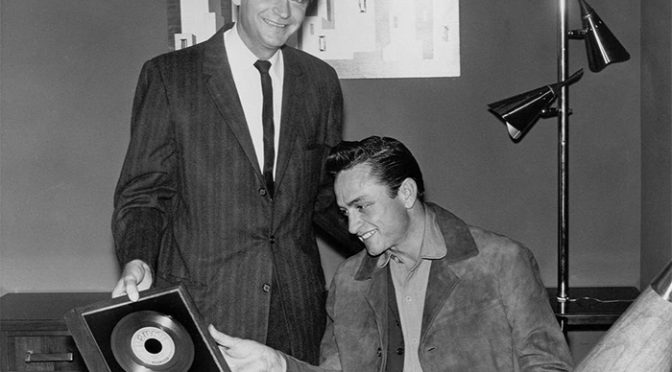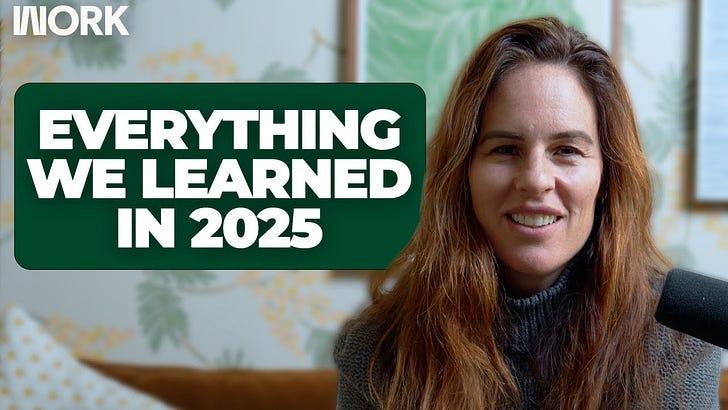
Lisa Bodell: Change Is a Choice
In this article, Lisa Bodell challenges the way we typically think about change. Rather than viewing it as a dramatic, all-or-nothing leap, she reframes change…
Thought Leader: Lisa Bodell

By Chip Bell
“We’re on break!” the warehouse attendant barked in response to my repeated, “Excuse me?” I was at the pickup counter waiting for a lawn mower part. It was my third encounter with harsh apathy that morning. The first was the woman at the coffee shop who gave me a curt, “What’s good about it?” response to my morning greeting. The next was the gas station owner, who gave me no verbal response or eye contact as I enriched his coffers with fifty bucks. And now, “We’re on break!”
We seem to be living in an era of passion larceny. Apathy comes in many forms. It can be complete emotional indifference like the sleep-walking movement of a hotel bartender or the wooden sound in the operator’s voice. Apathy robs teams of energy, marriages of romance, and organizations of much-needed productivity. So how can leaders, who may feel overworked themselves, help turn a flat tune mumbled by a frontline associate into a best-selling song that gets customers humming? It was the same challenge Johnny Cash faced when he auditioned in 1955 with Sun Records. (Inspiration from Sam Phillips at Sun Records.)
Walk the Line was the box office hit movie that depicted highlights of Johnny’s life based on his biography Man in Black. One of its most powerful scenes in Gill Dennis and James Mangold’s screenplay is Cash’s audition at Sun Records in Memphis with Sam Phillips, the legendary producer who discovered Elvis Presley, Roy Orbison, Jerry Lee Lewis, and B.B. King. Accompanied by his two backup singers, Cash began to sing a then-popular gospel song. Less than one minute into the song, Phillips stopped Johnny and questioned his belief in what he was singing.
“You saying I don’t believe in God?” Johnny retorts in disbelief.
“You know exactly what I’m telling you,” replies Phillips. “We’ve already heard that song a hundred times. Just like that. Just…like…how…you sing it.” Johnny came to his own defense and that of his backup singers. “You didn’t let us bring it home.”
Phillips’ poignant response was a turning point in Johnny’s life. Perhaps without it, we would never have gotten the gift of music that Johnny Cash created. His many #1 hit songs resulting in his induction into the Rock and Roll Hall of Fame, the Country Music Hall of Fame, and the Gospel Music Hall of Fame.
“Bring it home?” said Sam Phillips. “All right, let’s bring it home. If you was hit by a truck and you was lying out there in the gutter dying, and you had time to sing one song…one song that people would remember before you’re dirt; one song that would let God know how you felt about your time here on earth; one song that would sum you up…you tellin’ me that’s the song you’d sing? That same Jimmy Davis tune we hear on the radio all day about your peace within, and how it’s real, and how you’re gonna shout it? Or…would you sing somethin’ different? Somethin’ you felt. Cause I’m telling you right now, that’s the kind of song people want to hear. That’s the kind of song that truly saves people. It ain’t got nothin’ to do with believin’ in God, Mr. Cash. It has to do with believin’ in yourself.”[i]
I hope you see the movie, if just for that one great scene! But think about the call-to-action Phillips issued. Johnny Cash was a singer—a deliverer of music. What if the storyline had been about your unit or organization—a deliverer of value to customers? What if it was your unit’s story and a Sam Phillips was goading you about whether you believed in the service you and your associates were delivering?
Are your customer-contact associates delivering a “hit” that could earn a standing ovation, or are they simply going through the motions with barely enough effort to get them to quitting time? Before you get run over by a bright shiny competitor with noticeably engaged associates, try these five steps.
It’s Not the Lyrics; It’s The Meaning
Photo by SSPL/Getty Images
Mediocre leaders tell employees the tasks to be done (the lyrics, so to speak). Great service leaders focus on why employees’ work is valued and its impact on the lives of others, especially customers. Even support personnel with no line of sight to the ultimate customer are given clarity about the link between means and ends. “Goodwill,” said legendary merchant Marshall Field, “Is the only asset that competition cannot undersell or destroy.” Give your associates a reason for excellence beyond a paycheck—i.e., good will. Help them value the “whys,” not just grasp the “how’s.” Ensure goals and scorecards include “customer feelings,” not just duties completed. According to research, the chief source of employee zeal is a valued purpose. Sam Phillips helped Cash realize that soul was as vital as sound.
Fashion Work to Be a Singalong, not a Solo
People take great pride in what they help create. Look for every opportunity to be inclusive. Instead of being the answer person, ask, “what are your thoughts?” before offering an opinion. You might be amazed at the astuteness that comes back. Got a unit challenge? Nothing brings a team together than being given the opportunity to problem solve with you, not just execute for you. Treat your associates like valued partners, not just worker bees there to make you look good. “Intentional inclusivity,” wrote Amber Booth-McCoy in an August 17, 2021, Forbes.com post, “is asking “Who’s not at the table that needs to be?” and “Did they get the invitation with detailed directions to the table and upon arrival a chair and a microphone?” Always be quick to show gratitude.
Give Employees the Liberty to Learn
ROWN/AFP via Getty Images
If you hire the right person with the right attitude, failure is a vital step in achieving excellence, not a malicious or careless infraction. Mistakes afford you the chance to give the second greatest gift you can give another—learning. Be the mentor that leads them to insight and discovery rather than acting as an authority with insider information. “A mentor is someone who sees more talent and ability within you, than you see in yourself, and helps bring it out of you,” wrote author Bob Proctor. Since learning is a door opened only from the inside, be the person your associates will want to invite in, along with your wisdom. Nurture associates to go outside their comfort zone—the only path to progress. They may look forward with anxiety, but they will look backward with pride.
Help Associates Make It Their Song
Great singers, like excellent frontline employees, need some creative license. Sometimes called empowerment, it comes down to trust—ensuring people have the ability and latitude to put their own style into their “showpiece.” “We want to create an environment where every employee can bring their whole self to work and not just make a living but also have a life,” wrote PepsiCo CEO Indra Nooyi. Keep in mind that service is a performing art. Without the space to perform artistically, associates are just robotically reading a script. Show your trust by being open, genuine, and patient. Hear their ideas and affirm their boldness in offering them. Again, help your associates believe in what they are “singing.”
Be Your Employees’ Biggest Fan
Photo by Jamie Squire/Getty Images
Treat different employees differently. “One size fits all” treatment shows ignorance of uniqueness and indifference to learning about them. Instead, show curiosity about those you lead and make sure they experience your attention on their lives and interests. Leading means championing not commanding, supporting not demanding. Be a proactive guardian of their dignity. Praise their good works in the presence of others. If they have a concern, make them feel they hit the jackpot when they bring it to you. Show your employees how to treat customers by the way you treat them.
Your growth comes, not from repeat business but from customer advocates—devoted enthusiasts who come back with their friends. And that requires employees eager to “fall in love” with customers and work to make their experience special. Be the leader associates will want to zealously support.
i] Excerpt from Walk the Line, written by Gil Dennis and James Mangold. @ 2005. All rights reserved. Courtesy of Twentieth Century Fox.
Lisa Bodell: Change Is a Choice
In this article, Lisa Bodell challenges the way we typically think about change. Rather than viewing it as a dramatic, all-or-nothing leap, she reframes change…
Thought Leader: Lisa Bodell
Erika Ayers Badan: 2025 In Review
I got a text the other night from my friend Erin letting me know that the year of the horse is in fact coming but…
Thought Leader: Erika Ayers Badan
Dr. Sanjay Gupta: Why You’re Breathing Wrong
Chronic disease, anxiety, ADHD, and even the shape of a person’s face could be consequences of dysfunctional breathing. And most of us, it turns out, are doing it wrong – but it’s never too late…
Thought Leader: Sanjay Gupta

